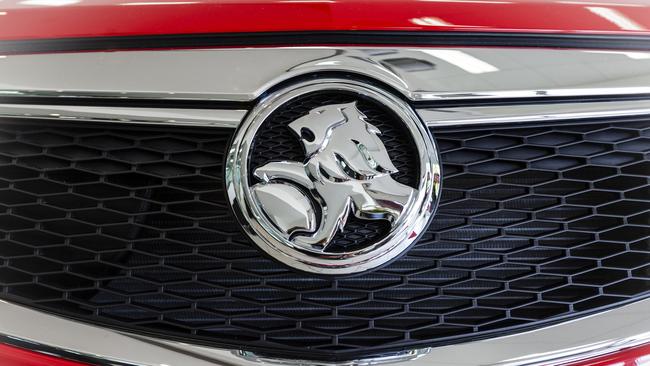Dealers driven to despair as code of conduct not binding on big auto firms
Draft plan draws criticism from peak body representing new car dealers, who had hoped for a binding code of conduct.

A new government plan to prevent multinational auto companies from treating franchisee dealers unfairly is purely voluntary, documents seen by The Australian can reveal.
The draft plan has drawn criticism from the peak body representing new car dealers, who had hoped for a binding code of conduct following the controversy around General Motors’ withdrawal of Holden from Australia.
A leaked document from the Department of Industry, seen by The Australian, lays out six principles designed to govern the relationship between automotive companies and the independent dealers who enter into a franchise agreement with them.
The document, titled “Draft Principles for new car dealership agreements” says its purpose is to “provide guidance to participants of issues that should be considered when embarking on the development of a new vehicle dealership agreement.”
It says that franchisors “should” include provisions in new dealership agreements that provide for “fair and reasonable” compensation in the event they withdraw from the Australian market, change their distribution model or rationalise their network, but does not require them to do so.
The plan recommends franchisors “should not” include provisions “that exclude compensation in new dealership agreements”. It also recommends auto companies provide a “fair and reasonable time” to secure a return on investment mandated by the company, that they buy back or compensate dealers’ inventory and tools in certain circumstances and that there should be provisions for timely commercial settlements and dispute resolutions.
But the Australian Automotive Dealer Association has been calling for the creation of a mandatory automotive code of conduct governing relationships between auto companies and dealers after a series of actions by manufacturers caused the industry alarm.

In February automotive giant General Motors announced that it would retire the Holden Brand in Australia, paying out the nation’s 185 franchised dealers with a compensation deal deemed by some as “inadequate”.
Another blow for the industry came in March, as Honda announced it would move to an “agency model” where dealers are paid a sales commission for selling cars on behalf of Honda, instead of purchasing the cars and reselling them. In July, Mercedes-Benz announced it would implement a similar model by 2022 without compensating dealers for the change.
Industry Minister Karen Andrews and Employment Minister Michaelia Cash responded in June by adding regulations to the automotive schedule of the franchise code and promised the further development of a principles-based compensation guide.
But AADA CEO James Voortman told The Australian on Thursday that any code or principles governing the relationship between auto cars and dealers had to be mandatory.
“We are working with the government to try and develop a robust framework to better regulate relations between car dealers and offshore manufacturers,” Mr Voortman said.
“Dealers have been consistent in their position that any code or principles need to be mandatory rather than voluntary.”
Mr Voortman said that even if the draft principles had been in place when GM announced Holden’s withdrawal from Australia, it would not have prevented the stoush that eventuated.
“A voluntary approach will not prevent the reoccurrence of another dispute like the one we saw between General Motors and its Australian dealers,” he said.
Labor Senator for NSW Deborah O’ Neill, who sits on the Senate inquiry into GM’s Holden operations in Australia, earlier this week wrote to Ms Andrews and Ms Cash asking them to take action over Mercedes-Benz’s change to their dealer model.
She told The Australian a voluntary code would be of no benefit to Australian car dealers.
“What was shown at the Senate hearing into GM’s sudden exit from Australia is that overseas car manufacturers and Karen Andrews have no regard for, nor understanding of, car dealers in Australia,” she said.
“(Do they) seriously think a voluntary agreement would have deterred GM’s actions when they ran over dealers across Australia with their refusal to negotiate?
“Only just recently Mercedes-Benz worldwide head of sales, Britta Seeger, said she would continue to move to an agency model with dealers as there are no regulations in Australia to stop them from that type of exploitation — unlike the US market.”
Ms Andrews said it was always the intention of the government for the development of the principles to be led by industry.
“There is understandably contention from different parties within industry around the principles. It’s disappointing that this draft has been leaked in the middle of negotiations, jeopardising the good faith that’s been on display so far,” she said.
Senator Cash has been contacted for comment.



To join the conversation, please log in. Don't have an account? Register
Join the conversation, you are commenting as Logout